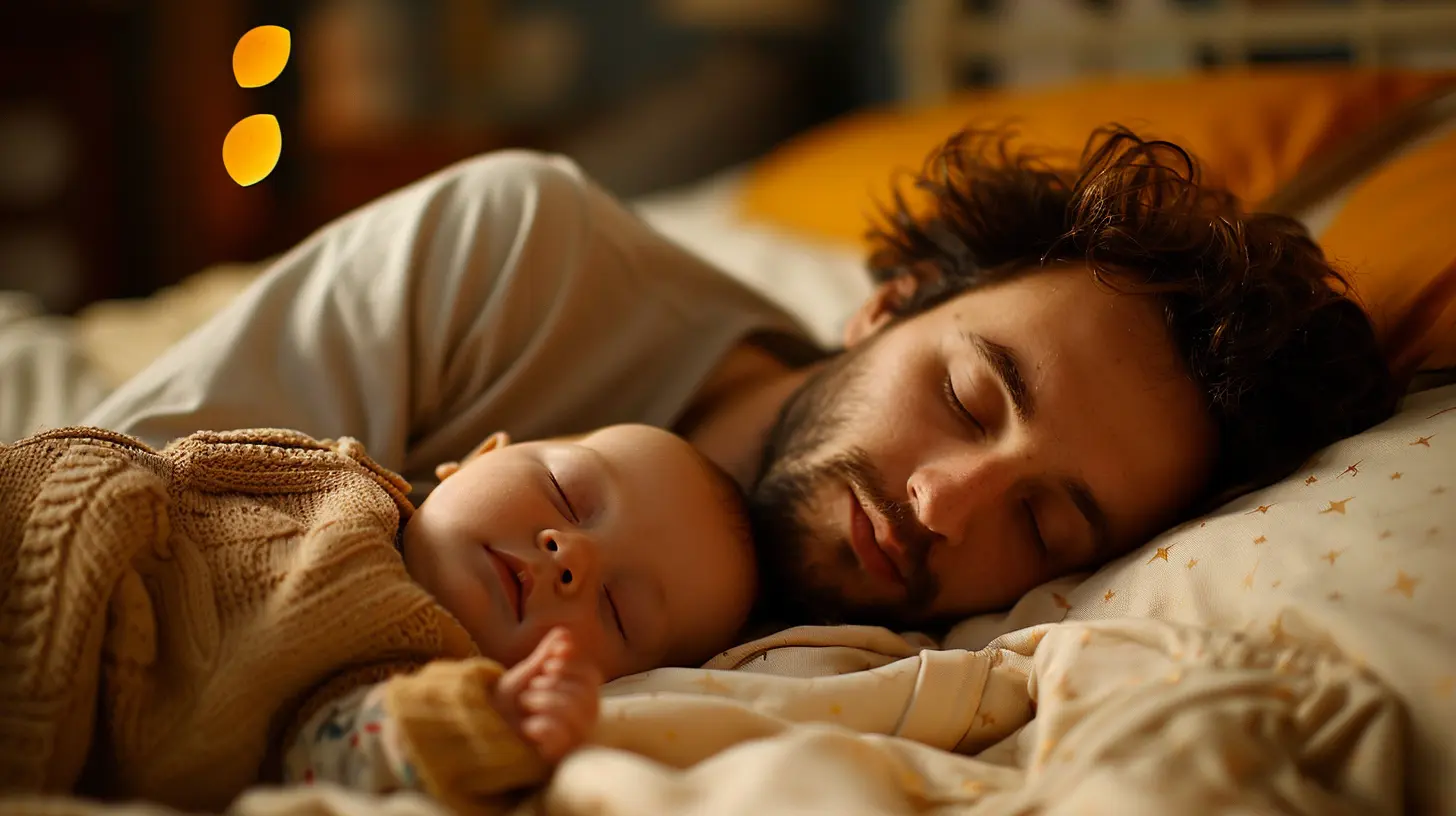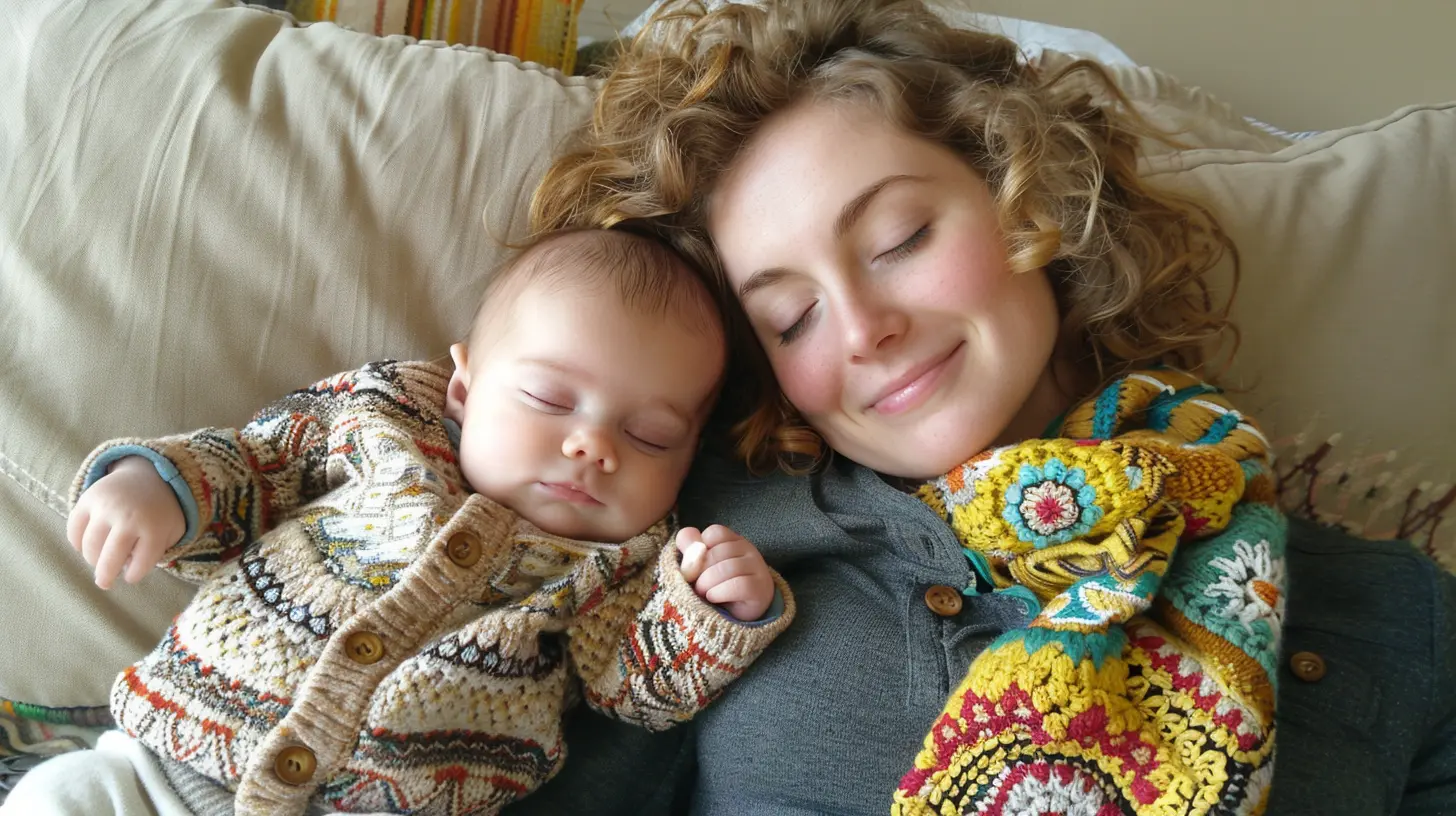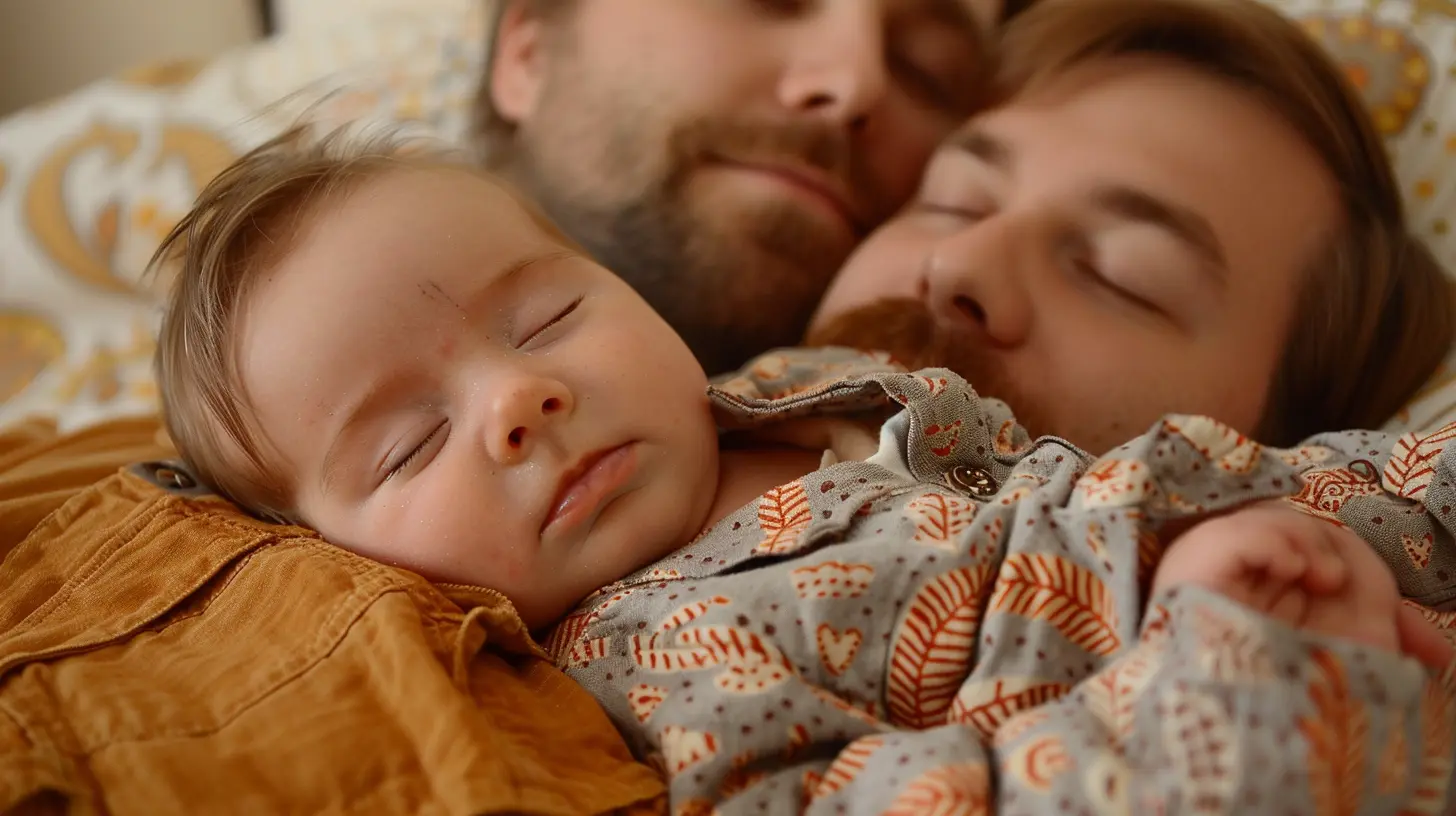Co-Sleeping: The Pros, Cons, and Safety Tips
6 October 2025
Parenting. It’s an adventure, right? From the moment that tiny human comes into your world, you're suddenly juggling sleepless nights, feeding schedules, and your own sense of sanity. And one of the big questions many parents face early on? Should we co-sleep with our baby?
It’s a topic that can divide parents faster than pineapple on pizza. Some swear it’s the best thing they’ve ever done, while others wouldn’t dream of it (pun intended). So, let’s dive deep into the cozy, sometimes complicated world of co-sleeping — the good, the not-so-good, and how to do it safely if you decide it's right for your family.
What Exactly Is Co-Sleeping?
Before we get into the nitty-gritty, let’s straighten out what co-sleeping actually means.Co-sleeping refers to any sleep arrangement where a parent or caregiver and their child sleep close to each other. This could mean:
- Bed-sharing: Baby sleeps in the same bed as you.
- Room-sharing: Baby sleeps in their own crib or bassinet in your bedroom.
- Sidecar arrangement: A crib is attached to your bed, allowing proximity without sharing the same sleep surface.
Now, when most people talk about co-sleeping, they’re usually referring to bed-sharing. That’s what we’ll mostly focus on here — but don’t worry, we’ll touch on all the variations.
Why Do Parents Consider Co-Sleeping?
Honestly? Because it’s hard when your newborn wakes up every two hours. Getting out of bed, stumbling around in the dark, and trying to soothe a crying baby while you’re half-asleep isn’t exactly the dream (no pun intended again… okay, maybe a little).Here are a few reasons parents choose to co-sleep:
- Easier nighttime feeding (especially for breastfeeding moms)
- More bonding time
- Faster response to baby’s needs
- Better sleep for baby — and sometimes mom and dad
- Cultural or traditional norms
It makes sense when you think about it. Humans evolved sleeping close to their babies, and in many cultures, co-sleeping is just a normal part of life.
The Pros of Co-Sleeping
Let’s talk about the warm and fuzzy side of co-sleeping. There are genuine benefits—both emotional and practical.1. Better Sleep (Sometimes)
Many parents say that once they start co-sleeping, everyone sleeps better. You don’t have to get up for every little whimper, and your baby feels calm knowing you’re right there. It’s like snuggling up with a warm, breathing security blanket — but for your baby.2. Easier Nighttime Nursing
This one’s a game-changer for breastfeeding moms. You can literally nurse half-asleep and not even remember the next morning. It reduces stress and makes those hourly feedings a little more manageable.3. Stronger Parent-Child Bond
Sleeping close to your baby promotes emotional security. It makes your child feel safe, cared for, and loved. And if you’ve ever watched your baby breathe peacefully beside you, you know it’s an incredibly special feeling.4. Better Regulation for Baby
Babies are tiny, and they’re still learning how to regulate things like body temperature and breathing. Being near a parent during sleep can actually help with that.5. Convenience
You’re tired. Your baby’s tired. Sometimes, co-sleeping just makes life easier—and that’s okay.
The Cons of Co-Sleeping
Now, let’s keep it real — co-sleeping isn't all fairy dust and lullabies. There are some downsides and risks that are important to think about before bringing your baby into bed.1. Safety Risks
The biggest concern with bed-sharing is the increased risk of Sudden Infant Death Syndrome (SIDS) and accidental suffocation. Soft mattresses, heavy blankets, or even a parent rolling over in their sleep can be dangerous for an infant.2. Sleep Disruptions
While some families sleep better together, others find the opposite. Babies are noisy sleepers. They grunt, wiggle, and sometimes cry out in their dreams. Not exactly the recipe for deep, restful sleep.3. Relationship Strain
Let's be honest — sharing your bed with a baby changes the dynamic between you and your partner. Cuddle time, intimate time, or even just late-night chats can feel... cramped.4. Difficult to Transition Later
Kids love routine and familiarity. If they spend the first few years in your bed, moving them to their own space can be a real challenge down the road.5. Mixed Opinions from Others
You might get side-eye from Grandma. Your pediatrician may caution against it. People have opinions — and that can sometimes add unnecessary pressure or guilt.Co-Sleeping Safety Tips
If you decide to co-sleep (and many families do), it’s crucial to do it safely. Bed-sharing can be done in a safer way, though it's important to know the differences between ideal and risky setups.1. Follow the Safe Sleep Seven
Here’s a simple checklist, originally developed by La Leche League, often called the "Safe Sleep Seven":1. You are a non-smoker.
2. You're sober (no alcohol, drugs, or medications that make you groggy).
3. You're breastfeeding.
4. Your baby is healthy and full-term.
5. Baby sleeps on their back.
6. You and baby are on a safe sleep surface (firm mattress, no pillows or heavy blankets).
7. Baby is lightly dressed.
If all seven are true, your baby is at much lower risk for sleep-related incidents while bed-sharing.
2. Keep the Bed Bare and Firm
Say no to fluffy pillows, comforters, or stuffed animals near your baby. They’re comfy for you—but dangerous for baby. Opt for a firm mattress and skip the extras.3. Dress Baby in a Sleep Sack
Instead of using loose blankets (which can be risky), try a wearable blanket, also called a sleep sack. It keeps baby warm and safer.4. Avoid Sofas and Recliners
Never, ever sleep with your baby on a couch or recliner. These surfaces carry a much higher risk of suffocation.5. Use a Co-Sleeper or Sidecar Crib
If you're nervous about bed-sharing but still want your baby nearby, a co-sleeper that attaches to your bed is the best of both worlds.6. Keep Pets and Older Children Out of the Bed
As cuddly as they are, pets and older siblings aren't safe sleeping buddies for your baby. Keep the space just for you and baby.When to Avoid Co-Sleeping
Co-sleeping might not be the best choice if:- You or your partner smoke (even outside the house)
- You’ve used alcohol, sedatives, or other substances
- Your baby is premature or has low birth weight
- You’re overly fatigued and might sleep too deeply
- You have a mattress that’s soft or sinks in easily
Every situation is different. And if any of these apply to you, it’s safer to use a crib or bassinet in the same room instead.
What If You Want to Stop Co-Sleeping?
Deciding to stop co-sleeping is a personal decision — and honestly, there's no “perfect” time. Some kids transition out on their own (usually when they start realizing bed-hogging is not fun). Others need a little help.Here are some gentle strategies to make the shift:
- Start with naps in their own crib or bed.
- Gradually increase distance — maybe go from bed-sharing to a sidecar crib, then to their own room.
- Establish a solid bedtime routine — one that’s calming and consistent.
- Stay nearby — sit with them until they fall asleep. Over time, move a little farther away each night.
Patience is key. And if you backtrack now and then, that’s normal too. Parenting is a winding road, not a straight line.
So... Should You Co-Sleep?
Here’s the thing: there’s no one-size-fits-all answer. Every baby is different. Every parent is different. Some nights, co-sleeping might feel like magic. Other nights, it might feel like chaos.What matters most is that you make an informed choice that feels right for your family — not one based on judgment or fear.
Whether your baby sleeps in your bed, in a crib, or in another room entirely, the most important thing is that they feel safe, secure, and loved.
Final Thoughts
Co-sleeping isn't just about sleep — it's about connection. It's about navigating the beautiful, messy, exhausting dance of parenthood and figuring out what works best for your crew.Whatever you choose, trust yourself. You are your baby’s best advocate, and you get to decide what kind of sleep arrangement supports your family’s well-being.
Take the information, consider your lifestyle, follow safe practices, and don’t forget — it’s okay to change your mind.
After all, parenting is the ultimate "learn-as-you-go" experience — and sleep? Well, that’s just one part of the journey.
all images in this post were generated using AI tools
Category:
Baby SleepAuthor:

Kelly Snow
Discussion
rate this article
1 comments
Storm Bellamy
Thank you for this insightful article! It’s so important for parents to consider both the benefits and challenges of co-sleeping. Your safety tips are especially helpful in guiding families toward informed decisions. I appreciate the balanced perspective you’ve provided on this topic.
October 14, 2025 at 4:59 AM

Kelly Snow
Thank you so much for your kind words! I'm glad you found the article helpful and informative. Your support is appreciated!


